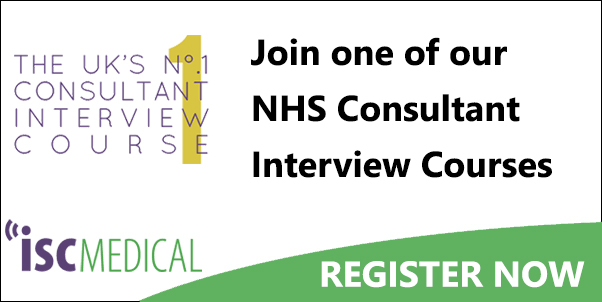Why NHS Issues Are Taking a Backseat at NHS Consultants Interviews
Whenever a senior trainee or locum consultant is applying for a substantive consultant post, the first thing they tend to tell themselves is “I need to know more about the NHS”, usually followed by hours of Googling various reports sometimes dating back to the 1940s. But NHS issues often are not a big part of NHS Consultants Interviews.
They learn the key recommendations from the Darzi report, they hope to remember as many as possible of the 294 recommendations from the Francis report, or most of the 15 recommendations of the Carter report. And, when it comes to the interview, they are surprised that none of those reports were asked about; however they were asked “Prove to me that you are safe” and struggled with it.
The focus is on practical NHS issues
Five to ten years ago, before the NHS reconfiguration got out of hand, there were indeed questions of the type “Tell me what you know about the Darzi report”. However, even when such question came up, no candidate was expected to regurgitate a full lecture on the topic. Instead, being able to present the two or three main themes was deemed sufficient – after all, you don’t imagine that anyone on the panel has actually read the reports! Some of the them run into tens of thousands of pages.

And so, as over the years we progressed towards more practical issues such as how to become more efficient, how to improve quality of care without incurring too many costs, how to make sure we didn’t allow rogue doctors from remaining undiscovered (e.g. Shipman, Patterson), the interview questions became a lot more practical.
For example, you are now more likely to be asked “How can we measure quality effectively?” or “How can we provide more for less money?” than to be asked the ins and outs of the Carter report. As such, you only need to know the broadlines of those reports and none of the detail.
NHS reports deal with nothing more than common sense
If you thought that any of those NHS reports actually contained anything really clever then think again. In fact, you most likely already know what is in them. It’s just that you haven’t labelled it a Francis, a Darzi, or a Carter issue.
For example, some of the most important things to come out of the Francis report were Duty of Candour, the need to pay attention to basic care and governance, the need for greater accountability and the need to give safety priority over targets. That is nothing that the average applicant doesn’t already know.
Similarly the Carter report is about systematic quality measurement, more staff empowerment, more patient-centred pathways, reducing waste, proper rota management and better use of nurses to provide better coverage and reduce the need to recruit agency staff. Nothing particularly new or challenging about that.
You will rarely fail on NHS issues
At an interview, you are more likely to fail because you can’t answer simple questions such as “What makes you safe?”, “How do you keep up to date?” or “What strengths do bring to a team?” rather than a lack of knowledge on some obscure report.
Indeed a chief executive will be less bothered about your lack of detailed knowledge on Carter but will be more bothered that you cannot prove that you are a safe physician or surgeon.
Our consultant interview course covers everything you need from general questions to management questions and NHS issues, just at the right level. That is why we have a success rate of 97% and a recommendation rate of 100%.


